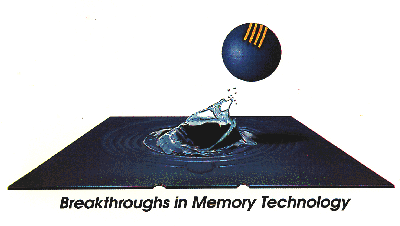
PCMCIA Memory Issues

The down side to Card and Socket services is the impact on DOS memory.
Approximately 45K-120K of conventional DOS memory is consumed to provide
this interface. An additional 64K of upper memory is also reserved to access
and manage PCMCIA resources. The direct memory impact to both and DOS and
Windows ranges from 109K-184K or more, before anything else is loaded.
To complicate the problem further, the reserved memory space fragments
the upper memory region into small, somewhat unusable memory blocks. Not
recovering this wasted memory generally leaves the system lacking enough
available memory to run critical applications.
In the modem only environment, only 4K-8K of upper memory needs to be reserved. In the modem/network environment, only 4K-24K must be reserved. That means that 40K-60K of the 64K reserved upper memory block goes unused and wasted.
ATLast! has a PCMCIA interface that detects and protects the actual
upper memory required and recovers the unused space. In addition, ATLast!
recovers any other upper memory not previously configured. This typically
results in an additional 32K-100K upper memory space. Once configured,
the automatic memory recovery and automated maintenance features of ATLast!
increase user productivity and greatly reduce problems requiring technical
support.
Although Enabler programs do not provide the ease of installation of Card and Socket services, once configured, require little or no memory to initialize the specific PCMCIA PC-Card. Generally, either one or two enabler programs can be run at the same time. The only down side of using Point Enablers is that they are more difficult to configure and the "Hot-Swapping" features are not available.
If you need the extra memory, it will be well worth the time to configure
a Point Enabler.
Back to the Future" aka RYBS Home Page
Copyright (c) 1996 - 2000 RYBS Electronics, Inc. All rights reserved.